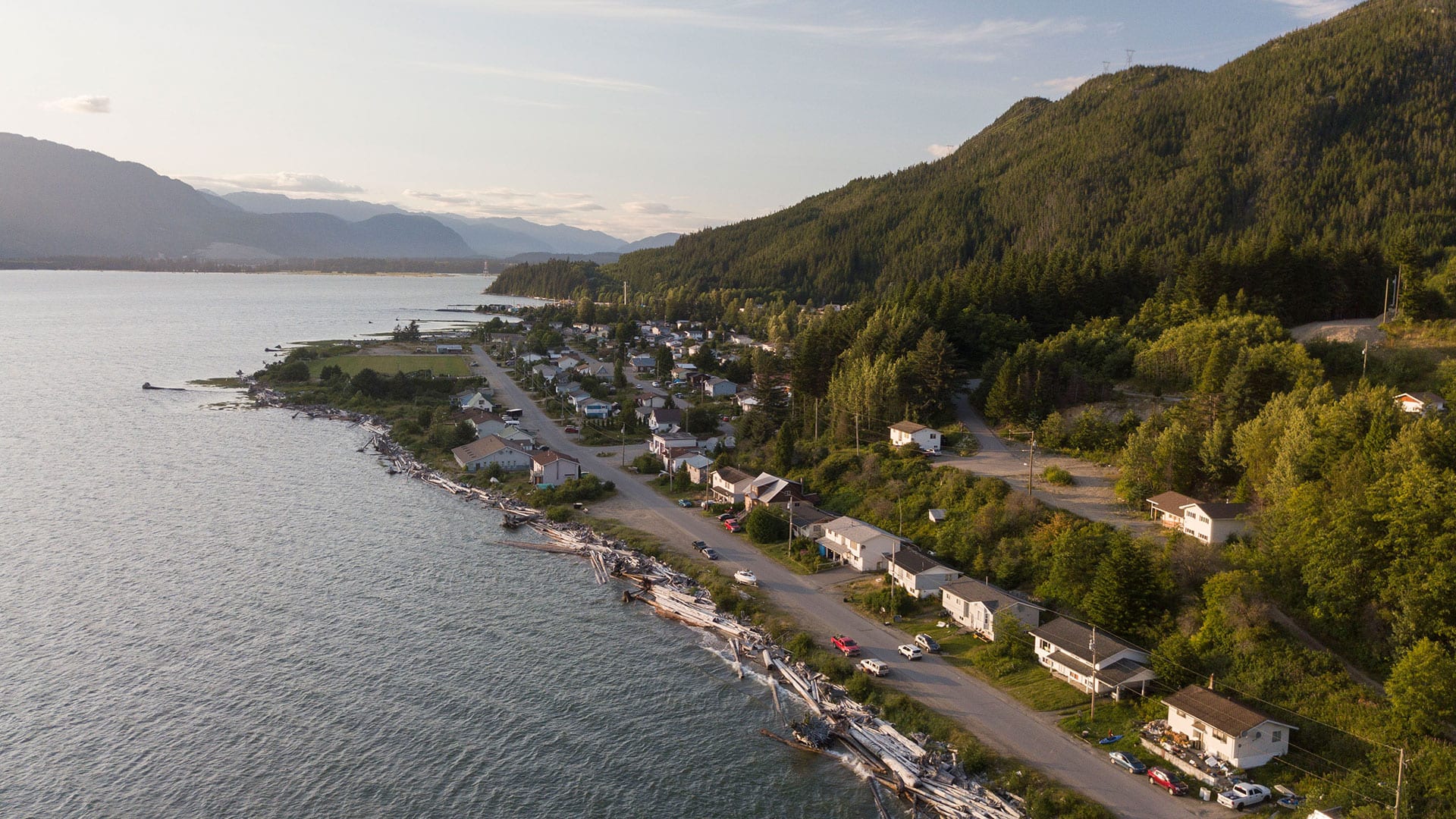Haisla Nation member Theresa Windsor still remembers a moment three years ago when her son came home from school and shared the words he learned.
“He shared a blessing in our language at the dinner table. It brought my parents, my sister and myself to tears because we couldn’t understand what he was saying. So that sparked something deep within me to take a look at why we weren’t speaking or understand the language, ” said Windsor who is the Haisla Community Cultural Coordinator.
Windsor said it was eye-opener for her family, sparking this journey for the revitalization of language and culture.
She decided to volunteer and held a meeting in the community around the language.
Windsor then brought the information from that meeting to Haisla Nation Council.
She found out they already been planning to address challenges with language and culture.
For the last three years, Windsor has been working as the Community Cultural Coordinator, along with a growing team.
Windsor is thankful for the foundational work done in the past, so the cultural team was not starting from scratch.
“I am talking about all the work that fluent elders and other people who have contributed to capturing and documenting our history and language. We wouldn’t be able to carry it this far without all the work they’ve done,” said Windsor.

Now, in an effort to preserve the language, the Haisla Nation is running a workshop documenting more than 10,000 words with the help of fluent Elders.
The Rapid Word Collection workshop will take place in late August to early September with social distancing in mind to manage risks due to the pandemic.
The the knowledge holders are all over the age of 60. Nearly 20 Elders have passed since she started her job.
“At the time 101, and now I believe we are at 80 elders. We are still trying to figure out fluency, but those numbers might change, but from the people that we know that can speak fluently, that number is down to 82,” said Windsor.
The cultural team recognized this race against time.
The Haisla team put in the foundational work but needed to find more supports.
A few years ago they first met with Scott Jeary, executive director of First Nations Education Foundation, a Vancouver based charity that works with First Nation governments to develop cultural centric language revitalization programs.
Last week, they were in the town of Kitimat to work with the Haisla Peoples to put safety measures in order to work with their vulnerable population during the pandemic.
They also prepared for the upcoming workshop.
Meetings with the groups were conducted by Zoom with staff at Haisla Education Centre.
“Through technology and venue space and really good partners that way, I think we have been able to overcome those challenges, what looks like being able to pull off a good solid workshop, “ shared Scott Jeary.
Jeary says the work is possible thanks to a partnership with NIB Trust Fund, who is funding 70 per cent of this project.
The National Indian Brotherhood Trust provides educational programs for First Nations and Metis people. They also provide reconciliation programs to assist with the intergenerational effects of the residential school system.
Industries that operate in Haisla traditional territory also contributed, such as Ledcor, TC Energy and Rio Tinto.
The language Haislakala is formed of closely related dialects of two communities, the Kitlope and Kitimat, who amalgamated in 1948.
Larry Hayashi is a linguist who will be working with the First Nations Education Foundation and is excited to be here and work with the people.
“It’s been wonderful to meet with the team here from Haisla Nation and also hear their stories of how as they engage with the language, it really affects who they are and goodness of who they are,” he said.
Hayashi is one of two linguists that will lead the ten-day to fourteen-day Rapid Word Collection workshop that aims to energize the community and collect as many words as possible through collaboration.
Rapid Word Collection is a technique that has been used all around the world, but according to Hayshia, this is the first time it is being used in British Columbia.
“We are usually shooting for ten to 17,000 words in that amount of time and bringing the community together. It’s a lot of people working off each other’s synergy as they remember the words,” said Hayashi.
They will document as many Haislakala words as possible after that workshop is complete start building a new curriculum.
They will add to the Haislakala dictionary, help build an app for mobile devices and export the data into First Voices.
The following months they will be recording Elder’s stories building a collection of Haisla history.
Liz Robinson who works for Haisla Education and Employment, hopes the community gets behind the revitalization project.
“For our current generations but also our kids so they have a strong identity as Haisla and know what it means to be Haisla, shared Robinson. “Because our language and curriculum development is going to have land-based activities. Not only will they learn the language, but they will learn our cultural activities hands-on.”
The goal after documentation is to transform the knowledge in a way that it can be taught to the next generations.
They are preserving a culture thanks to the support of a community. Teresa Windsor is feeling optimistic seeing the project all come together.
“This gives me hope because that is what I want for the collective, but that’s what I want for my children, and all our Haisla children is to feel like they belong and that they have a place in this world.”









